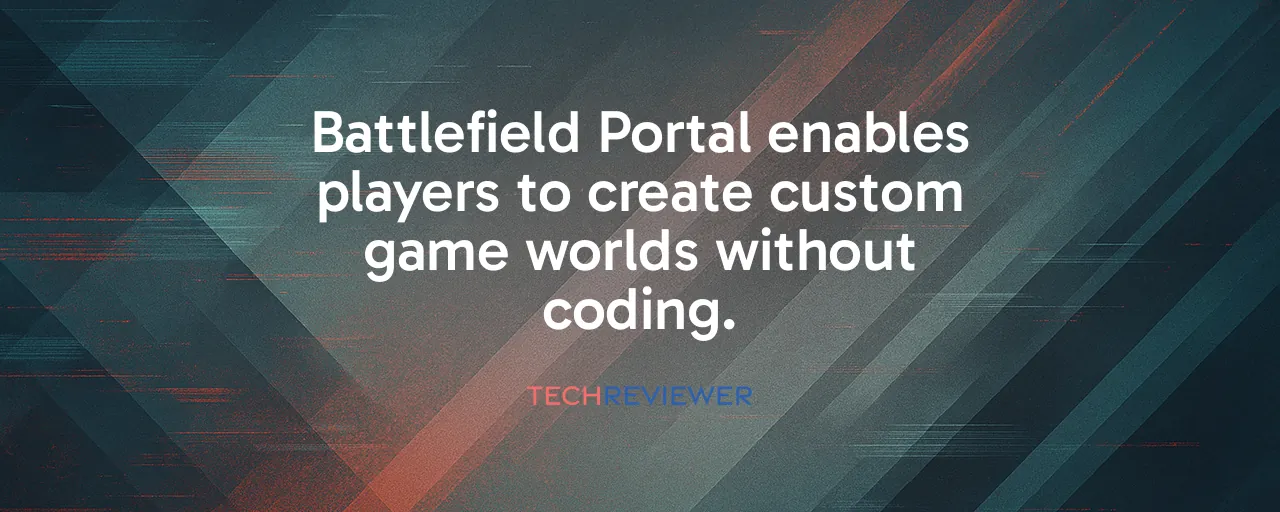A New Era of Player Creativity
When Battlefield 6 launched on October 10, 2025, it didn't just deliver fast-paced firefights. It handed players a powerful toolkit called Portal, letting them build their own worlds. Before Battlefield 6's official launch, a creator named Matavatar stunned the gaming community by recreating Shipment, a legendary Call of Duty map from 2007, and confirming it would be playable on day one. It was a demonstration of Portal's capabilities, showing how accessible and versatile the tools are, letting anyone with a vision craft professional-quality experiences. The ability to merge elements from rival franchises like Call of Duty signals a shift in how games are played and created.
Portal, built on a customized version of the open-source Godot engine, offers features once reserved for professional developers. Players can sculpt maps, tweak AI behaviors, and even design custom interfaces without needing to code. Matavatar's Shipment, playable on launch day, proves these tools are intuitive enough for rapid creation yet robust enough to replicate iconic designs. Players flooded social media with requests for more classics like Nuketown and Firing Range, showing a hunger for blending the best of both franchises.
Why Fans Are Obsessed With Portal's Potential
The excitement around Portal stems from its promise of endless variety. Unlike traditional games where developers dictate the content, Battlefield 6 empowers players to shape their own experiences. Matavatar's work is just one example. The Portal reveal trailer showcased wild creations, like a map with jets weaving through rings of floating tanks or a chaotic highway where vehicles slide down a broken slope. These aren't just gimmicks; they expand what a shooter can be, letting players explore ideas beyond military themes. With assets from older Battlefield titles like 1942 and Bad Company 2, creators have a vast playground to remix and reimagine.
Players aren't just creating for fun; their work keeps the game alive. Research shows games with strong user-generated content, like Minecraft or Roblox, see 30 percent longer play sessions. Portal's integration of full XP progression in community maps ensures players stay invested, unlike older custom modes where progress stalled. By letting creators host persistent servers, EA fosters dedicated communities around unique experiences, from retro map revivals to experimental new modes.
Lessons From Battlefield and Fortnite's Creator Ecosystems
Battlefield 6's Portal isn't alone in betting on player creativity. Fortnite Creative, launched by Epic Games, offers a similar model where fans build and share custom islands. Comparing the two reveals distinct approaches. Fortnite's system, tied to Unreal Engine, lets creators craft visually unique worlds with custom assets, driving engagement through revenue-sharing programs. In 2025, Fortnite creators earned 74 percent of revenue from their islands, fueling professional-grade content. Battlefield's Portal, while lacking monetization, focuses on accessibility. Its Godot-based tools simplify creation for beginners, and its asset library from past Battlefield games ensures instant familiarity.
The lesson? Fortnite thrives on financial incentives, attracting creators who treat it as a career. Battlefield, by contrast, leans into creative freedom for hobbyists, with Matavatar's Shipment showing how fast fans can produce high-quality work without expecting payment. However, Portal's lack of revenue sharing might limit its long-term output compared to Fortnite's bustling creator economy. Both systems prove that empowering players extends a game's life, but Battlefield's challenge lies in sustaining creator motivation without direct rewards.
Navigating the Risks of Fan-Made Worlds
Portal's open-ended creativity comes with hurdles. Recreating Call of Duty maps like Shipment raises tricky questions about intellectual property. Legally, these recreations likely infringe on Activision's copyrights, as they copy creative layouts without permission. Yet, enforcement remains spotty, with companies often tolerating fan projects as free marketing. EA benefits by attracting Call of Duty players, but risks blurring Battlefield's identity if fan-made maps overshadow its own designs. Players, meanwhile, face a learning curve. Portal's visual scripting and spatial editing, while user-friendly, demand time to master, and poorly optimized creations could frustrate players with crashes or lag.
Content moderation is another concern. Unlike Roblox, which uses automated filters and human review to catch inappropriate content, Battlefield Portal relies heavily on creators to self-regulate. Without robust systems, offensive or broken maps could slip through, souring the experience. The absence of monetization also means creators like Matavatar work for passion, not profit, which could cap the quality and volume of content compared to platforms like Fortnite or Roblox, where creators earn significant revenue.
What's Next for Gaming's Creative Frontier
Battlefield 6's Portal mode points to a future where players don't just play games; they build them. The rapid recreation of Shipment and the community's call for more maps show how UGC blurs lines between competing franchises, letting fans craft the crossovers they've always wanted. This trend echoes the past, like when Counter-Strike emerged from a Half-Life mod in 1999, spawning a franchise worth over 6.7 billion dollars. Today's tools are far more accessible, turning hobbyists into potential innovators without needing a computer science degree.
Looking ahead, EA could strengthen Portal by adding creator rewards or better moderation tools to match competitors. The use of Godot also hints at a broader shift, legitimizing open-source engines for AAA games and inspiring other studios to follow. For players, Portal offers a chance to leave their mark, whether by reviving classics or inventing bold new experiences. As gaming evolves, the line between player and creator will keep fading, making moments like Matavatar's Shipment just the start of something bigger.
